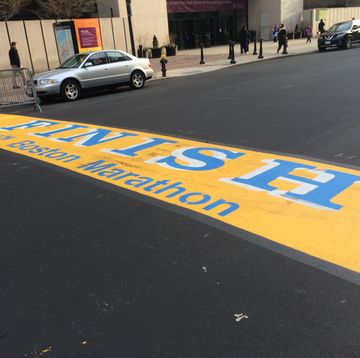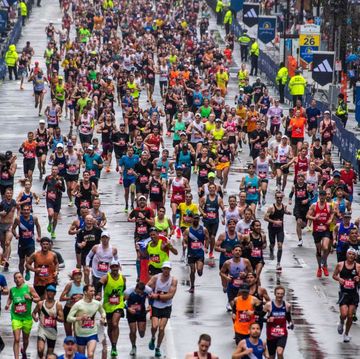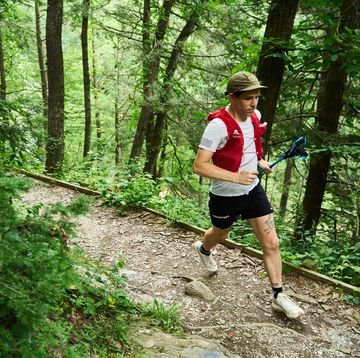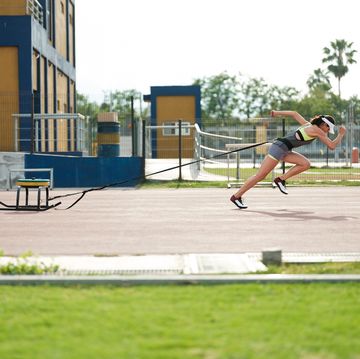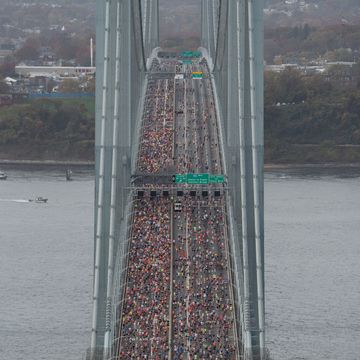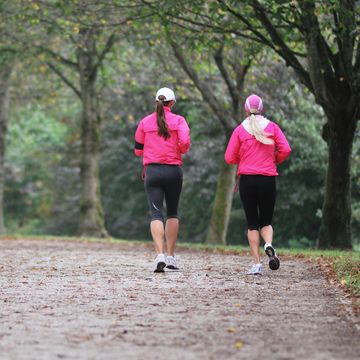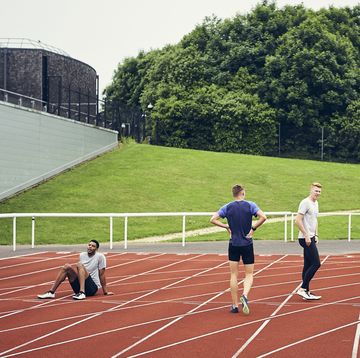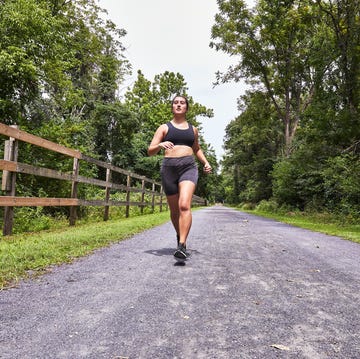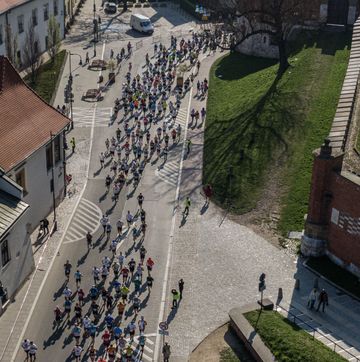“Let's thank the volunteers!” We all join in that brief, polite round of applause every week. Few of the volunteers actually hear it, because while the runners are collecting their awards and partying, the volunteers are still out folding banners, taking down tents, picking up discarded cups and completing a million other tasks. Their work continues long after the race is over, just as for many of them, the day began while the runners were still sleeping.
Put simply, the whole worldwide phenomenon of running would collapse without volunteers. Every task, from basic race operations to complex medical and security arrangements, depends on volunteers, even when specialist professionals (like timing or finish-line management) and public services (like police) are also involved. No volunteers, no races. No shoe sales, no media, no social movement, no health benefits, no charity take, no economic infusion. The huge globe of running rests on the generous shoulders of the volunteers.
Do we take them for granted? Yes, mostly. Do we give them recognition? Not as much as they deserve. We all know they are essential, yet I can't remember ever reading an article about running's volunteers. So here is perhaps the first.
-----
Phil Stewart, editor and publisher of Road Race Management, recalls that running was originally a wholly volunteer culture.
“Fifty years ago, everyone, even the race director, was a volunteer. Today’s event directors have had to expand their base from the spouses and friends of runners to other groups, ranging from charities, which benefit from the event, to local students with community service credits to earn.”
Race directors are unanimous that volunteers are the lifeblood of the sport.
“There are not enough bouquets strewn at the feet of those who faithfully work to make races better and safer (and who show up on time). A special cheer for those volunteers who have never run a step in their lives but who make it possible for others to do so,” says Rich Benyo of the Napa Valley Marathon.
“Events like ours simply could not happen without great volunteers. They are the ones who work long hours to give all runners a positive experience,” says Jay Glassman of the GoodLife Fitness Toronto Marathon.
That’s the easy part. We can’t do without them. But why do they do it? Fred Lebow, founder of the New York City Marathon, famously said, “Anything for a T-shirt.” But the motivation must lie deeper, for what in many cases is a major commitment of time, labor and skill.
“We work for food, we work for beer, we work for a T-shirt or a jacket or a party. We work for a quiet ‘thank you’ from a tired runner. We work because we want to give back to the sport we love. We work because we want to be part of the exciting community of running,” says Les Potapczyk of Niagara Falls, who volunteers in various roles at races up and down the East Coast.
“It’s about caring—keeping a pocketful of Band-Aids for blistered runners, helping them track down their families, everything. Volunteering doesn’t just mean one particular task, it means staying till after the last runner has finished and taking down the course. And one of the best things is the mentoring [these workers] provide for up-and-coming volunteers, some of whom might go on to become race directors themselves,” says race volunteer Margaret Buttner of Vancouver, British Columbia.
Peggy Potapczyk feels that another key in motivation stems from the fact that even seemingly simple volunteer jobs can demand, and develop, a high level of expertise that is, in itself, rewarding.
“There’s a science to handing out medals if you don’t want your arm to drop off. Space blankets, water, everything has its own system if the runners are to be looked after. Bagging the food for the finish area is a big job—I organize the whole area and it’s like a production line,” she says.
Some roles, such as medical volunteers, require professional-level training and competence. The stakes are high, as the attack on the 2013 Boston Marathon proved. Les Potapczyk, who was on humble crowd-control duty at the finish line that day, was one of those who ran toward the danger to help.
“The most important objective is to help runners achieve their goals safely. Medical volunteers are the folks who help that happen,” says Rhonda Provost, medical coordinator at Napa Valley.
Many volunteers develop skills in areas like course measurement, finish-line management, crowd control and so on. The reward, says Peggy Potapczyk, is simply the basic human pleasure of doing something that is often difficult, something that is important for others, and doing it well. There is also the fascination of coming to understand the vast organizational structure of a big, modern race.
“Volunteering on the ground gave me a new perspective on what a huge event like the marathon is really like, and how it works, for runners and volunteers,” Buttner says.
The Potapczyks and the traveling band of volunteers they are part of have a basic rule: Never show ill temper or impatience, however tired the volunteer might feel.
“Our sport is welcoming. We’re there for the runners. As volunteers, we take a lot of pride in providing a quality experience,” said Les Potapczyk
When I asked what they get out of it, Potapczyk's answer was quick and simple: “Lasting friendships. And we’re all runners or former runners, so we get the sense of being still inside the sport.”
Jack Coughlin, a proud volunteer at the Boilermaker 15K in Utica, New York, says, “We get to help the best runners in the world perform at their best. The world comes to our race.”
Ottawa Marathon race director John Halvorsen also identifies that sense of active belonging, making a contribution to an event that is highly significant for the local community, as a motivating factor.
“It brings a feeling of ownership and [a sense of] sharing some of the glory. The higher the race’s profile, the greater is this reward of ownership for the volunteers,” he says.
Friendships, the pleasure of contributing, learning a trade, the buzz of being on the inside of a high-profile event, the pleasure of sharing some of the prestige that running enjoys in our society—those seem to be the main incentives that keep volunteers coming back.
Stewart adds that the philanthropic dimension of running is now a major incentive as well.
“The notion of helping a nonprofit event and its charity or ‘cause’ is compelling for many,” he says. A large number of volunteers identify their motivation in those terms.
“It's about being a cog in the wheel that has raised millions for the Princess Margaret Hospital and other charities,” says volunteer Ian Ser of Toronto.
Stewart went on to mention a potentially disruptive issue involving the role of volunteers in the sport’s current state of development.
“As more for-profits get involved, they take great pains to emphasize their support of nonprofit charities. One other important reason is that they keep their volunteers coming back,” he says.
So far, the volunteers at those races seem happy to work for private enterprises, since on the day it feels more about the sport than the profit. But there is a tension, if not an ethical conflict, in this growing trend for profit-making enterprises to enter running, on the back of a system of volunteer labor that was evolved for a strictly nonprofit activity. Hanging banners and filling water cups at 3 a.m. might seem less rewarding if the ultimate objective is perceived as an increase in the CEO's salary or building a corporate skyscraper in New York or Paris. Just a caution. Our sport needs to be watchful on behalf of those who give us so much.
Any other negatives? Some paid race directors find that volunteer race committees can be conservative or faction-ridden.
“The committee can become an obstacle to making the race better,” says one director. But those pro bono committees are also part of what makes running so voluntary, so intensely local, so deeply rooted in each race’s own community, and this sometimes creaky structure might be better than the alternatives of federation or corporatization.
The more volunteers I talk to, the more I like them. They make up a generous subculture that immeasurably enriches the sport. There is no obvious glamour, no medal involved, no media coverage. Yet the work does have its own rewards. It’s not only great runners who make inspiring role models.
“When you spend time with an experienced volunteer, you can’t help but respect their dedication. Their love of the sport becomes infectious and inspiring,” Buttner says.
“We have a tremendous camaraderie, we love our event, and we all work together to keep improving it. We always aim at perfection. We’ll keep at it until we get there,” Ser says.
And the runners don’t have a monopoly on the thrill of confronting a challenge, completing the task and reaching the finish line.
“There’s nothing quite like finishing the cleanup late in the day and high-fiving the other volunteers around you on a successful year,” Ser says.
My own experience of volunteering is mostly confined to a lifetime of long, stressful hours as stadium or finish-line announcer, a job where your mistakes are literally broadcast publicly. Once I was finish-chute marshal at a cross country meet, an afternoon of putting my supportive arm around exhausted runners covered in mud and froth, several of whom threw up on my shoes. I went back to announcing.
Track and field officials are another subculture of camaraderie, skill and high risk, giving their time to tasks where a judgment call of a fraction of an inch can change a young athlete’s life. Covering field events with the roving microphone, I have observed the custom that every competitor—from burly throwers to lithe jumpers--says a quiet “thank you” to the officials at the end of competition. That’s a nice practice. As a selfish runner, I had never thought of it. Now I try to do the same.
That is the main objective of this column. Volunteers: Thank you.

Roger Robinson is a highly-regarded writer and historian and author of seven books on running. His recent Running Throughout Time: the Greatest Running Stories Ever Told has been acclaimed as one of the best ever published. Roger was a senior writer for Running Times and is a frequent Runner’s World contributor, admired for his insightful obituaries. A lifetime elite runner, he represented England and New Zealand at the world level, set age-group marathon records in Boston and New York, and now runs top 80-plus times on two knee replacements. He is Emeritus Professor of English at Victoria University of Wellington, New Zealand, and is married to women’s running pioneer Kathrine Switzer.


